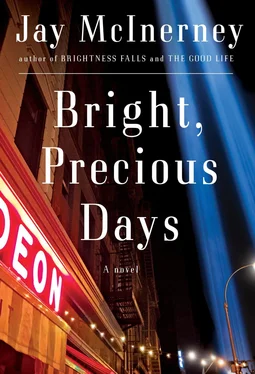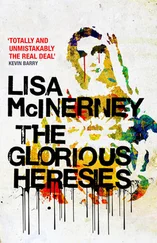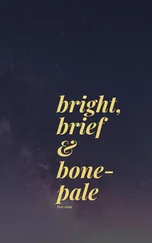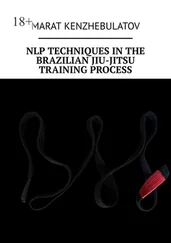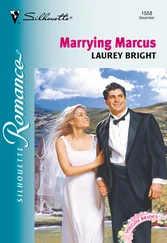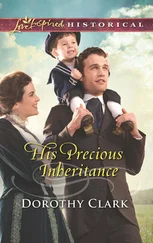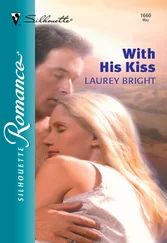He gave directions to the Fatted Calf while Cara explained to Jack that he really should have had his party at KGB in the East Village, before launching into a speech about her other favorite bars and clubs, babbling melodiously, filibustering her rival. She was still talking when they arrived at the restaurant. This battle for Jack’s attention, and the youth of the crowd upstairs, made Russell feel suddenly old and weary. He stayed just long enough to introduce Jack to some of the other writers on hand, then struggled down the stairs against the incoming tide of bodies, leaving Jonathan to keep an eye on the star of the evening.
—
The publicist showed up at the office just before noon the next day and stepped into Russell’s office to give his report. “You missed the whole second wave, which was pretty fucking crazy. Nancy Tanner got hammered and danced on the bar, and these two girls got in a catfight over Jack, and then sometime around one-thirty he disappeared with Dan Auerbach.”
“Who’s that?”
“Guitarist for the Black Keys. Anyway, I got a message from him at four-thirty this morning. Hard to understand, between the accent and the slurring and the music in the background, but I think he was looking for cash.”
“Definitely time to send him home to Tennessee.”
“Well, you might want to rethink that. The 92nd Street Y just had a last-minute cancellation and they wonder if he wants to share the bill with Richard Conklin on Monday night. Actually, it was Conklin himself who requested him.”
“Jesus,” Russell said. For all his belief in Jack, he was kind of amazed at the rapidity of his rise, and slightly worried about how the young author would handle it. He had a lot of issues to begin with, and Russell wasn’t sure that his previous life on the ragged edge of American civilization had prepared him for the ordeal of literary celebrity. “Tell them if we can find him by Monday and he wants to do it, they can have him.”
“WOW, I FEEL LIKE I JUST CLIMBED OUT of the Wayback Machine, this is, like, so eighties. Isn’t that David Byrne over there? It’s like any minute now we’re going to see Keith Haring and Basquiat slouching around.”
“I know, it’s like my nose is twitching. I suddenly feel this overwhelming urge to tease up my hair and do some blow.”
“It’s not like cocaine ever went away.”
“It did for some of us, honey.”
“Is the man of the hour finally clean?”
“What, Tony? That’s the whole point of this show. It ought to be subtitled My Thirteenth Trip to Rehab Finally Did the Trick. ”
“Actually, I was shocked to hear he was still alive.”
“The way I heard it, Arkadian saw him staggering around the Lower East Side in rags one night, took him home and paid for a stint at Hazelden.”
“That’s the nicest thing I’ve ever heard about Gary.”
“Not really. He’s making fifty percent on every canvas Tony sells from here on out; plus, he bought masses of the old paintings for next to nothing while Tony was detoxing. And those are the ones everyone suddenly wants. Basically, it was totally in character for Gary.”
“Oh, look, isn’t that Dash Snow? He’s so hot.”
“So hairy, you mean.”
“Speaking of the recrudescence of drugs.”
“The what of drugs?”
“It just means drugs are back.”
“I keep telling you, they never went away. Every twenty-two-year-old in this city has a dealer on speed dial.”
The one with the too-blond hair and the Pee-Wee Herman shrunken suit, sensing that she was eavesdropping, turned and glared. “Can I help you?” he said.
“I don’t think so,” Corrine said, retreating into the crowd and trying to find Russell, who was supposed to meet her here.
The artist was hidden inside a distant scrum of bodies, a nimbus of LED light and clamoring, interrogative voices.
Eventually she spotted Washington, who was chatting up a pretty Asian girl in a neon green mod dress with intricate tattoos mimicking sleeves. He appeared momentarily discomfited when he saw Corrine, but quickly recovered his composure, kissing her cheek.
“This is my friend Corrine Calloway,” he said, clearly at a loss for the girl’s name.
“I’m Jenna,” she said.
“I was just giving Jenna a little art historical context. Basquiat, Kenny Scharf, Futura 2000.”
“That’s very kind of you,” Corrine said. “You have the real pedagogic instinct.”
“I just love the eighties,” Jenna said. “You guys are so lucky you were around then.”
“Yes, they were…memorable,” Corrine said. “Except that, they say, if you can remember them, then you probably weren’t there.”
Momentarily puzzled, Jenna forged on. “I mean, the whole club scene, Area and Danceteria, and the graffiti thing. That must’ve been so cool.”
Corrine hadn’t been to the clubs in question and hadn’t been all that fond of the graffiti thing at the time. She remembered when every urban surface was covered with strange names and slogans, and how it had reflected the dread and menace that was the psychic weather of the city back then, the visual equivalent of boom boxes and car alarms, the backdrop for muggings and murders. Subway cars entirely obscured beneath the colorful malignancy, which in her mind seemed to have something to do with their thoroughly erratic schedules and tendency to break down mid-tunnel. And even the color was quickly swallowed up by the pervasive pre — catalytic converter filth in the air, an encompassing sootiness that turned chartreuse to mustard, pink to burgundy, white to gray. In time, this girl’s tattoos would suffer the same fate.
“Remember those paintings on the sidewalk that were like crime scene outlines of bodies,” Corrine said. “Like the ones police draw at murder scenes? And everybody assumed they were real, because it just seemed like, of course. There was so much fucking crime.”
“Richard Hambleton,” Washington said somewhat smugly.
She suddenly realized they’d had this same exchange just recently. “Yeah, well,” she said, “I’ll take your word for it. He knew what he was doing. That guy had the zeitgeist down cold. I remember coming across those and thinking, Yeah, this is how we live and die in New York. That was the eighties,” she said, turning to the young woman in green. “Looking over your shoulder all the time, convinced that you’d get mugged or killed. Having your purse or gold necklace snatched on Fifth Avenue. Waking up in the middle of the night with some junkie trying to pry apart the bars on your bedroom window. Watching people you knew die of AIDS. But otherwise —fun.”
“That was very eloquent,” Washington said after Jenna fled.
“Just trying to provide some sociological context to go with your art history,” she said. She wondered what Luke would have made of her commentary and wished he could have heard it.
“You lived on the Upper East Side, for Christ’s sake.”
“I got around,” she said.
“Yeah, right. Between Park and Madison. Who did you know who died of AIDS?”
“Are you seriously asking me that?”
“Oh, shit, sorry,” he said.
The subject of Jeff having been raised, if only obliquely, she said, “It might interest you to know that I once rescued Tony Duplex from a drug den on Avenue B.”
“You’re red-lining credulity here, honey. If you’d said a poker game on Avenue A, I might have almost believed you.”
“It’s true. Jeff called me one night. They were being held hostage by a drug dealer who they owed a lot of money. I had to deliver cash.”
He looked at her as one might at a small child who persists in fibbing.
Читать дальше
